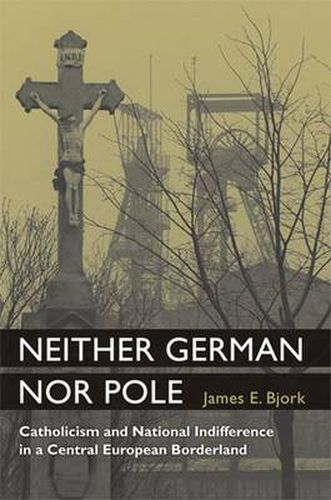Readings Newsletter
Become a Readings Member to make your shopping experience even easier.
Sign in or sign up for free!
You’re not far away from qualifying for FREE standard shipping within Australia
You’ve qualified for FREE standard shipping within Australia
The cart is loading…






Neither German nor Pole examines how the inhabitants of one of Europe’s most densely populated industrial districts managed to defy clear-cut national categorization, even in the heyday of nationalizing pressures at the turn of the twentieth century. As James Bjork argues, the ‘civic national’ project of turning inhabitants of Upper Silesia into Germans and the ‘ethnic national’ project of awakening them as Poles both enjoyed successes, but these often canceled one another out, exacerbating rather than eliminating doubts about people’s national allegiances.In this deadlock, it was a different kind of identification - religion - that provided both the ideological framework and the social space for Upper Silesians to navigate between German and Polish orientations. A fine-grained, microhistorical study of how confessional politics and the daily rhythms of bilingual Roman Catholic religious practice subverted national identification,
Neither German nor Pole
moves beyond local history to address broad questions about the relationship between nationalism, religion, and modernity. This is a unique study of the importance of religious identification in a multinational region.
$9.00 standard shipping within Australia
FREE standard shipping within Australia for orders over $100.00
Express & International shipping calculated at checkout
Neither German nor Pole examines how the inhabitants of one of Europe’s most densely populated industrial districts managed to defy clear-cut national categorization, even in the heyday of nationalizing pressures at the turn of the twentieth century. As James Bjork argues, the ‘civic national’ project of turning inhabitants of Upper Silesia into Germans and the ‘ethnic national’ project of awakening them as Poles both enjoyed successes, but these often canceled one another out, exacerbating rather than eliminating doubts about people’s national allegiances.In this deadlock, it was a different kind of identification - religion - that provided both the ideological framework and the social space for Upper Silesians to navigate between German and Polish orientations. A fine-grained, microhistorical study of how confessional politics and the daily rhythms of bilingual Roman Catholic religious practice subverted national identification,
Neither German nor Pole
moves beyond local history to address broad questions about the relationship between nationalism, religion, and modernity. This is a unique study of the importance of religious identification in a multinational region.